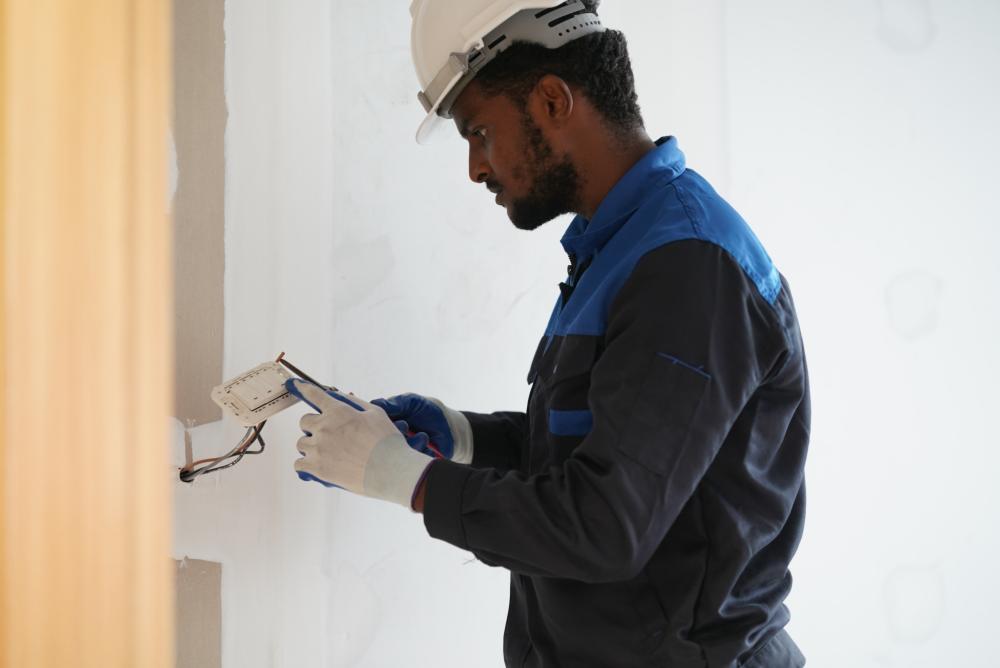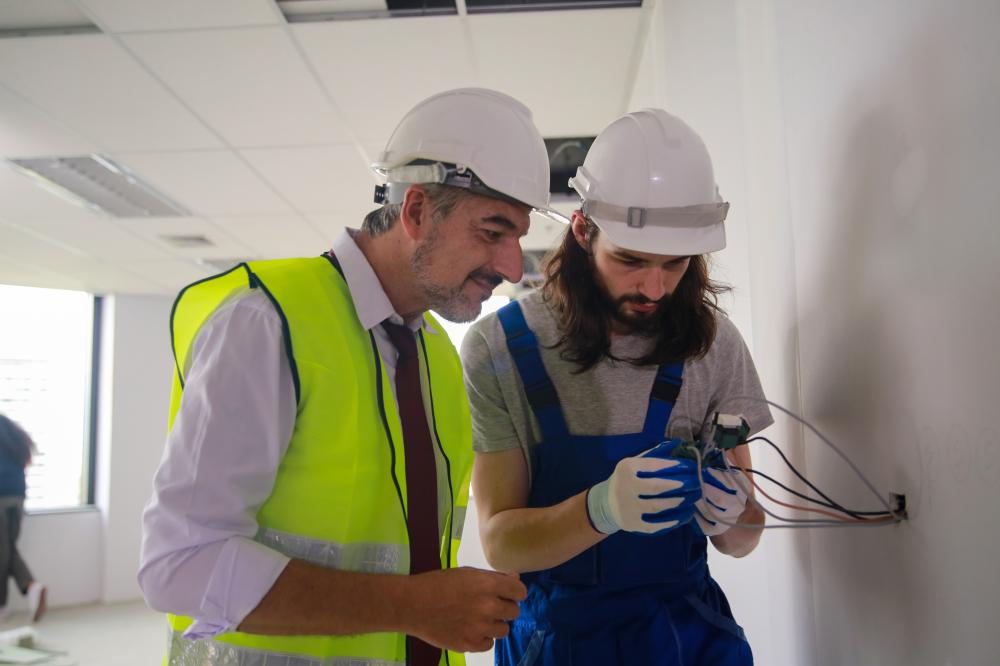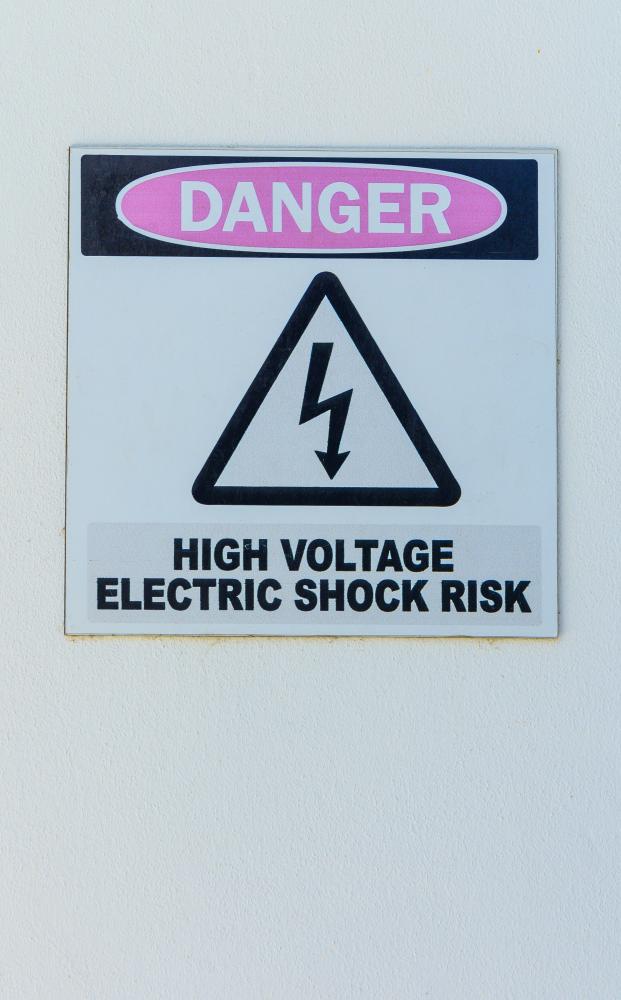Electrical Safety Inspection

Choosing a Company for an Electrical Safety Inspection
Regular electrical safety inspection is crucial in maintaining a safe home and workplace environment. Considering the growing reliance on electrical devices in our daily lives, inspecting electrical systems can help prevent potential hazards, such as fires or electric shocks. Throughout decades of experience, professionals have seen that investing in regular inspections not only ensures personal safety but also protects properties from costly damage.
Electricity is an unseen power that silently does its work, often overlooked until something goes awry. Yet, it can be as perilous as it is indispensable. A thorough electrical safety inspection checks everything from circuit breakers to wiring, ensuring your systems are running smoothly and safely. For example, a homeowner once discovered, through an inspection, that their aging wiring was a ticking time bomb waiting to ignite. Prompt action saved both their family and their home.
What to Expect During an Inspection
Many might wonder, "What exactly happens during an electrical safety inspection?" First and foremost, a certified technician will assess the condition of all accessible electrical systems. This includes checking outlets, switches, light fixtures, and even larger systems such as your HVAC units. Essentially, any component that draws electricity will be scrutinized to ensure it operates as designed.
Technicians will typically look for outdated or worn-out systems, which can range from obsolete wiring to malfunctioning circuit breakers. They may also assess if your electrical system can handle your current load, offering valuable insights if your system requires an upgrade. It's akin to going to the doctor for a check-up; they ensure that everything is functioning the way it should while offering advice on necessary improvements.
One of the lesser-known aspects of an electrical safety inspection is the focus on current efficiency standards. Inspectors may suggest more energy-efficient alternatives or provide solutions for optimizing power usage, which could lead to reduced utility bills. It's a less commonly addressed benefit that many homeowners and businesses appreciate once they see the impact on their energy consumption and costs.
Unique Considerations for Residential and Commercial Properties
Electrical needs can differ significantly between residential and commercial properties, and so do the standards for electrical safety inspection. In homes, inspectors often focus on ensuring that appliances, child-proof outlets, and lighting are up to code. Families can have peace of mind with features like ground fault circuit interrupters (GFCIs) that prevent dangerous shocks.
Conversely, commercial properties may have a more complex network of electrical systems due to operational demands. Inspections for these buildings often require attention to specialized equipment and higher capacity wiring systems. A large retail store, for instance, may have systems that need to support a myriad of functionalities, from lighting to security systems. Such environments necessitate inspections that are both meticulous and sector-specific.
Many businesses also rely on backup generators to maintain operations during power outages. A thorough electrical safety inspection will ensure these generators and their connections are in excellent working condition, thus safeguarding business continuity. It's an additional layer of security that cannot be overstated when uninterrupted power is crucial, like in hospitals or data centers.
In both residential and commercial settings, professional insight plays a pivotal role in identifying unique requirements and solutions. This personalized approach not only addresses immediate needs but also anticipates future demands, ensuring both homes and businesses remain safe and energy-efficient in the long term.

Highlighting the Importance of Electrical Safety Inspections
When it comes to ensuring the safety and efficiency of a building's electrical system, regular inspections are more than just prudent--they are essential. Many homeowners and businesses might wonder about the electrical safety inspection cost, but the peace of mind these assessments provide is priceless. As an organization deeply invested in home systems, Home Alliance has witnessed firsthand how the right inspection can spare clients from potentially catastrophic incidents. An inspection evaluates the condition of wiring, outlets, and all electrical components, ensuring everything is functioning within safe parameters.
In the realm of residential and commercial properties, skipping regular electrical inspections can sometimes lead to undetected hazards that may escalate into severe problems, including fires or electrical shock. Home Alliance's experience shows that while the upfront electrical safety inspection cost may vary, the investment pays dividends by preventing costly repairs or replacements down the line. The expertise of qualified inspectors is invaluable as they identify and address potential issues before they become serious threats.
Factors Influencing Electrical Safety Inspection Cost
Several variables influence the electrical safety inspection cost, and understanding these can help property owners make informed decisions. First, the size and complexity of the property play a significant role; larger homes or commercial spaces will typically incur higher inspection costs due to the increased area and number of electrical components. Additionally, the age of the property is a critical factor, as older buildings may have outdated systems requiring more thorough assessment to ensure compliance with current safety standards.
Geographical location can also affect the cost, with prices varying from one region to another due to differing labor rates and local regulatory requirements. Home Alliance has noted that some regions might have stringent inspection standards, potentially adding to the overall expense. It's also essential to consider that special equipment or expertise may be necessary for certain inspections, again potentially influencing cost.
Another aspect that often goes unnoticed is the frequency of past inspections. Properties that have not been inspected for a long period are more likely to have underlying issues, thus potentially increasing the electrical safety inspection cost due to the need for more extensive evaluations. Regular inspections, as recommended by professionals, can help mitigate these costs over time by maintaining the integrity of the electrical system.
Finally, choosing a reliable service provider like Home Alliance can impact the ultimate cost. While opting for cheaper, less experienced inspectors might seem tempting, it can result in missed issues or incorrect assessments, leading to more expensive problems later. Investing in a reputable company ensures quality and thoroughness, which, while potentially higher upfront, is more cost-effective in the long run.
Uncovering the Hidden Benefits of Regular Inspections
Beyond the obvious safety advantages, regular electrical inspections offer several hidden benefits that further justify the electrical safety inspection cost. For instance, inspections can lead to increased energy efficiency, as identifying and repairing faulty components can reduce unnecessary energy consumption. This not only helps in saving on utility bills but also contributes to a more sustainable environment.
Regular checks also provide an opportunity to update or upgrade the existing electrical systems, enhancing performance and accommodating new technologies. In commercial settings, particularly, ensuring that the electrical infrastructure meets current standards can boost productivity by avoiding unexpected downtime due to system failures.
Home Alliance has observed that clients who prioritize regular inspections often experience improved overall reliability of their electrical systems. This reliability is crucial for both domestic comforts, such as uninterrupted heating and cooling services, and business operations, where continuous electrical supply is vital. The reassurance that comes from knowing one's property is electrically sound cannot be understated, and it often outweighs the electrical safety inspection cost.
The Unseen Importance of Electrical Safety Inspections
Electrical safety inspections are crucial in maintaining the sanctity of both residential and commercial spaces. While many think of them as a routine check, these inspections serve as the guardian angel of your home, identifying potential electrical hazards that could lead to severe consequences. At Home Alliance, where customer safety is a priority, the importance of scheduling regular electrical safety inspections is emphasized to prevent future troubles like electrical fires or power failures.
During an electrical safety inspection, the nuances of your electrical system are evaluated meticulously. From ensuring your circuit breakers are functioning correctly to checking the integrity of wire insulation, these inspections are detailed. They often reveal issues that are not immediately apparent but could cause long-term damage or even catastrophic failures. This proactive approach to electrical maintenance, advocated by Home Alliance, helps in avoiding costly repairs and heartaches down the line.
The aging infrastructure in many homes further underscores the need for electrical safety inspections. With the increase in power demands due to technological upgrades in households, older systems might not cope efficiently. Home Alliance ensures that their inspections are thorough, addressing these concerns and providing practical solutions to upgrade or modify existing systems for enhanced safety.
Dispelling Common Myths About Electrical Safety Inspections
Despite their importance, there are several myths associated with electrical safety inspections that need to be debunked. One common misconception is that new homes do not require these inspections. The team at Home Alliance stresses that even newly built homes can have hidden issues due to oversight during construction or low-quality materials being used inadvertently.
Another myth is the belief that DIY enthusiasts can perform electrical safety inspections independently without professional help. While the urge to save money and feel self-reliant is understandable, electrical systems are complex, and any oversight can lead to hazardous situations. Home Alliance experts highlight that professional inspections are worth the investment, safeguarding both your property and peace of mind.
Lastly, many tend to think that inspections are only essential after a fault occurs. However, the beauty of electrical safety inspections lies in their preventive nature, catching issues before they morph into problems. Embracing this proactive stance can save homeowners a significant amount of money and stress over time.
Home Alliance's Approach to Electrical Safety Inspections
Home Alliance, with its rich legacy in the HVAC domain, brings a unique perspective to electrical safety inspections. Their team of seasoned professionals is well-versed in addressing the intricacies of electrical systems in conjunction with HVAC considerations. This holistic approach ensures that all aspects of home safety and efficiency are covered under one roof.
Taking into account the specific needs of each household, Home Alliance customizes their inspection process. This tailored approach allows for a more thorough inspection that adapts to the unique electrical blueprint of your home. Whether you are dealing with an aging property or a newly constructed house, the Home Alliance team is equipped to deliver insights and actionable recommendations to enhance your home's safety.
Furthermore, Home Alliance ensures that their communication is clear and concise, avoiding the labyrinth of technical jargon that often accompanies such services. Their focus remains on providing understandable and practical solutions, ensuring homeowners are empowered and informed throughout the process. By placing customer satisfaction at the forefront, Home Alliance redefines the norms of electrical safety inspections, offering a service that is both reliable and reassuring.
In today's fast-paced world, safeguarding our living and working environments against unforeseen electrical issues is non-negotiable. Home Alliance's commitment to delivering top-tier electrical safety inspections sets a benchmark in the industry, providing peace of mind and a safer tomorrow for their clients.

What is required for an electrical inspection?
When preparing for an electrical inspection, there are several key elements that need organizing. At the forefront, ensure you have access to all areas where electrical systems are present, including the breaker panel, outlets, and exposed wiring. Our technicians at Home Alliance are meticulous about checking these components to ensure safety and efficiency.
Additionally, clear any clutter around electrical outlets and the breaker box to allow a thorough examination. It's also helpful to have a list of any electrical issues or irregularities you've encountered. Being proactive allows us to focus our assessment effectively. We often find that what you might consider a minor issue can reveal a more extensive underlying problem.
Think of an electrical inspection as a wellness check for your home's power systems. Just like a doctor would need your health history, we need access to all components of your electrical system for a comprehensive assessment. It's always a good idea to keep a record of past inspections and any updates or repairs made to the system, which you can share with us during our visit.
How much does an electrical inspection cost?
We understand that cost is a significant consideration for many homeowners and businesses contemplating electrical inspections. The cost can vary based on several factors, including the size and complexity of the property, the age of the infrastructure, and regional differences in labor rates.
At Home Alliance, we emphasize the value of these inspections in preventing costly repairs in the future. While costs might range from $100 to $500 or more, depending on these factors, the investment is well worth it for the peace of mind and safety they bring. We recommend reaching out directly for a detailed quote tailored to your specific needs.
Consider this: spending on a scheduled inspection now can save you from the unexpected expense of emergency repairs or even larger systemic failures down the road. It's an investment in the longevity and safety of your property. Wouldn't you prefer to address potential issues proactively rather than face unexpected crises?
How do you check electrical safety?
Checking electrical safety is a comprehensive process, one that our technicians at Home Alliance are trained to execute with precision. During an inspection, we begin by examining the breaker panel for any signs of overheating or wear. This is crucial because it controls the distribution of electricity throughout your home.
Furthermore, we meticulously inspect outlets and switches for any signs of damage or faulty wiring. GFCI outlets are tested to ensure they are working correctly, as they are vital safety features that prevent electric shocks. We also assess the condition of visible wiring and light fixtures. For homeowners, we advise being observant of any flickering lights or unusual sounds from electrical components, as these can be early signs of issues.
Electrical safety is not just a one-time check. It's an ongoing vigilance. Regular inspections are key to maintaining a safe home, and we're here to help ensure your electrical systems are both safe and efficient. Have you noticed any unusual signs in your home's electrical setup recently?
Is an electrical inspection worth it?
Absolutely, an electrical inspection is worth every penny and more. We've seen firsthand at Home Alliance how skipping these inspections can lead to severe issues, from electrical fires to costly repairs. Regular inspections ensure all systems are up to code and functioning safely, providing invaluable peace of mind.
Consider the inspection as a preventive measure, much like regular health check-ups. While you might not immediately see the benefits, the primary goal is to catch potential issues before they become major problems. This proactive approach not only safeguards your property but also protects all who live or work within.
In fact, our clients often express relief after inspections, knowing their electrical systems are sound. Isn't it better to invest now in professional insight rather than face unexpected hazards later? What future safety do you envision for your home or business?
How often should you have an electrical inspection?
For most residential properties, we recommend having an electrical inspection every three to five years. This frequency helps ensure that any changes in electrical usage or wear and tear on the system are addressed promptly. However, if you've recently added new appliances or had renovations done, it's wise to schedule an inspection sooner.
For commercial properties, annual inspections are often advisable due to the higher demands placed on the electrical system. At Home Alliance, we tailor our advice based on the specific needs of your property, considering factors like the age of the building and its electrical infrastructure.
Regular inspections act as a safeguard against the increasing load on electrical systems over time, especially as we rely more on technology. When was the last time you had your electrical systems checked? It might be worth considering an appointment soon to ensure continued safety and efficiency.
Resources
- Occupational Safety and Health Administration (OSHA) - Official website for workplace safety regulations and standards.
- National Fire Protection Association (NFPA) - Leading authority on fire, electrical, and building safety.
- National Institute for Occupational Safety and Health (NIOSH) - Research institute focused on workplace safety and health issues.
- Electrical Safety Foundation International (ESFI) - Nonprofit organization dedicated to promoting electrical safety awareness.
- U.S. Department of Energy - Government agency focused on energy efficiency and renewable energy resources.

